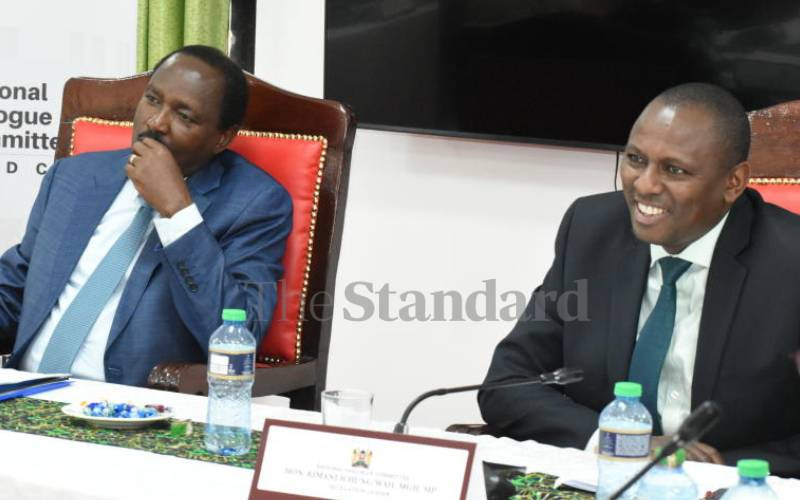×
The Standard e-Paper
Kenya’s Boldest Voice

The fate of the ongoing bipartisan talks appears shaky following differences that have persisted since the dialogue began in August.
At a press briefing on Friday, the National Dialogue Committee said they were yet to agree on contentious issues, some of which have previously threatened to derail the talks.